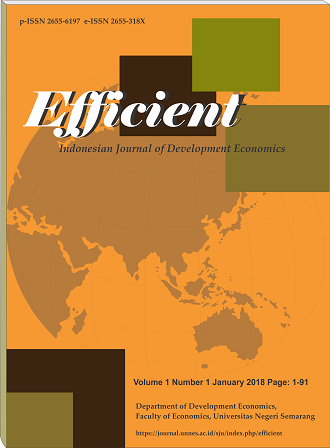Government Expenditure Efficiency on Human Development in The Underdeveloped Regions
Abstract
This study aims to analyze the efficiency of government expenditure on human development and the effect of real GDRP per capita, population density, and per capita fiscal transfers on the efficiency of government expenditure on human development in underdeveloped regions during 2017-2019. The method used in this study is Data Envelopment Analysis (DEA) with input oriented to analyze the efficiency of government expenditure and panel data regression to analyze the determinants of efficiency. The data used in this study are 122 districts which are categorized as underdeveloped regions with a study period of 2017-2019. The results of this study indicate that there are only 10 districts that are always efficient during the study period, and there are 7 districts that are only efficient in certain years. The underdeveloped districts in the western part of Indonesia are more efficient than the eastern part of Indonesia. The results of this study also show that real GDRP per capita and per capita fiscal transfers have a negative effect on efficiency, while population density has a negative effect on efficiency.






